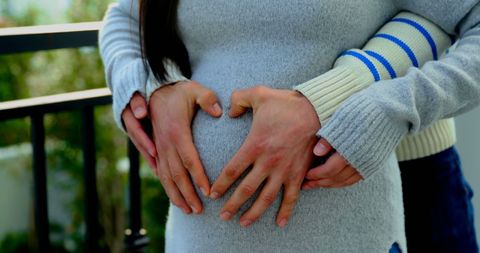Pregnancy for women is the most challenging time in her life, facing a lot of emotional, physical, and hormonal changes, and one of them is low libido in pregnancy, which affects her mood.
Understanding causes and factors and helping couples navigate this period with the right ways of communication, empathy, and support.
Causes Of Low Libido In Pregnancy
Women generally experience hormonal, emotional, and physical changes and especially the time during pregnancy, which vary in severity from one woman to another, including
Physical factors that cause low libido in pregnancy
Hormonal changes
Women face hormonal fluctuations like estrogen and progesterone, which cause fatigue and feeling exhausted, while prolactin hormone, which is responsible for producing milk, also plays a major factor in decreasing and having low libido during pregnancy
Physical discomfort
Back pain and changes in body shape and size, giving physical discomfort, which leads to low interest in sex and low libido in pregnancy
Gaining weight
As it's a natural part of pregnancy, gaining weight affects a woman's mood and leads to low sex drive because of shame and body changes, including hips and breasts, and an expanding belly
Skin changes
One of the things that appears in pregnancy is dark spots, hyperpigmentation changes in the skin, and stretch marks
Emotional factors that cause low libido in Pregnancy
Mood swing
Due to the hormonal fluctuations, it affects the mood as it goes up and down frequently
Stress and Anxiety
Thinking about labor, pregnancy, and parenthood affects libido
Emotional connection
Stressing about the emotional connection and relationship dynamic is causing low libido in pregnancy.

How To Reduce Physical And Emotional Factors To Increase Libido In Pregnancy
Managing physical change to decrease low libido in pregnancy requires
Nutrition
Eating a healthy diet full of vegetables and fruits, and vitamins the body needs, and drinking lots of water
Gentle exercise
Exercising daily for at least half an hour of walking, which helps increase blood flow in the body, which leads to an increase in sex drive
Comfortable position
An experimental position that gives a physical accommodation
Managing Emotional change to decrease low libido in pregnancy requires
Communication
Talking and having open communication with the partner, discussing fears, feelings, and desires.
Controlling stress:
Practicing yoga and deep breathing techniques helps manage anxiety and stress
Emotional Support
Getting support from your partner, family, and friends, or a therapist, to help manage emotions and deal with the emotional fluctuations
Self-esteem
Understanding and reading about the body changes during this period, as it’s a natural process, and the capability of the woman's body can help in self-image
Low Libido In Pregnancy During The Three Trimesters
First trimester
Due to the hormonal imbalance and the fluctuation of estrogen and progesterone that influence libido, nausea, morning sickness, and fatigue, sex will be far frwomen'smen minds at this time and less appealing
Second trimester
When the second trimester starts, Symptoms of vomiting and fatigue decrease. Women experience comfort again during this time, hormones begin to stabilize, and libido tends to increase to its highest
Third trimester
Reaching the third trimester, symptoms may change, including anxiety, stress, and lack of sleep, and noticeable changes may occur, such as an increase in the size of the abdomen and the appearance of stretch marks.
30% of women think that having sex or orgasm might harm the fetus or trigger preterm labor gynecologist recommends that having sexual relations during pregnancy doesn’t harm the fetus unless they have seen a certain danger.

How To Keep Intimacy Alive And Decrease Low Libido In Pregnancy
Keeping intimacy alive and increasing sex drive during pregnancy needs a blend of communication, emotional and physical connection, combined with self-care, to decrease low libido in pregnancy
Communication
Partners should communicate and discuss desires and needs openly, which will lead to a more fulfilling and healthier sexual relationship
Emotional connection
Increasing emotional connection by engaging in new activities together, connecting through cuddling, kissing, and holding hands, will lead to an increased libido during the period of pregnancy
Physical connection
One of the most important elements for the relationship is strengthening the sexual relationship, through massaging, exploring new positions, focusing on comfort and pleasure for both partners
Self-care
Caring about yourself during pregnancy, addressing any stress, and working on your well-being
Seek professional help
Seek the help of your midwife or nurse if you have any concerns or questions related to pregnancy or libido
Does Low Libido Differ In All Pregnancies?
Low libido in pregnancy has variability across pregnancies. It differs, as we mentioned before, in hormones, emotional and physical changes, as well as changes if it's your first pregnancy or your second one. Each pregnancy has its own challenges and differs in each symptom and its severity, including libido
A Reminder
It’s normal
Remember that it's normal to have a lot of changes, including physical, emotional, and hormonal changes. It's normal to have a low libido in pregnancy these changeshange
Temporary:
Remember that low libido in pregnancy is for a short time and will likely be back to normal after delivery, and may be after a couple of months of postpartum too.
How To Keep Intimacy Alive And Decrease Low Libido In Pregnancy
Keeping intimacy alive and increasing sex drive during pregnancy needs a blend of communication, emotional and physical connection, combined with self-care, to decrease low libido in pregnancy
Communication
Partners should communicate and discuss desires and needs openly, which will lead to a more fulfilling and healthier sexual relationship
Emotional connection
Increasing emotional connection by engaging in new activities together, connecting through cuddling, kissing, and holding hands, will lead to an increased libido during the period of pregnancy
Physical connection
One of the most important elements for the relationship is strengthening the sexual relationship, through massaging, exploring new positions, focusing on comfort and pleasure for both partners
Self-care
Caring about yourself during pregnancy, addressing any stress, and working on your well-being
Seek professional help
Seek the help of your midwife or nurse if you have any concerns or questions related to pregnancy or libido
Does Low Libido Differ In All Pregnancies?
Low libido in pregnancy has variability across pregnancies. It differs, as we mentioned before, in hormones, emotional and physical changes, as well as changes if it's your first pregnancy or your second one. Each pregnancy has its own challenges and differs in each symptom and its severity, including libido
A Reminder
It’s normal
Remember that it's normal to have a lot of change, including physical, emotional, and hormonal changes. It's normal to have a low libido in pregnancy; these changes
Temporary
Remember that low libido in pregnancy is for a short time and will likely be back to normal after delivery, and may be after a couple of months of postpartum too.
In conclusion, Low libido in pregnancy is a normal process that most women face.
By understanding, reading about the situation, knowing that this period is full of challenges women face, and having full support, knowledge from your partner using open communication and empathy, and asking for help from family and professionals, you will lead to a stronger, better, and healthier relationship.
Read more about:


You must be logged in to post a comment.